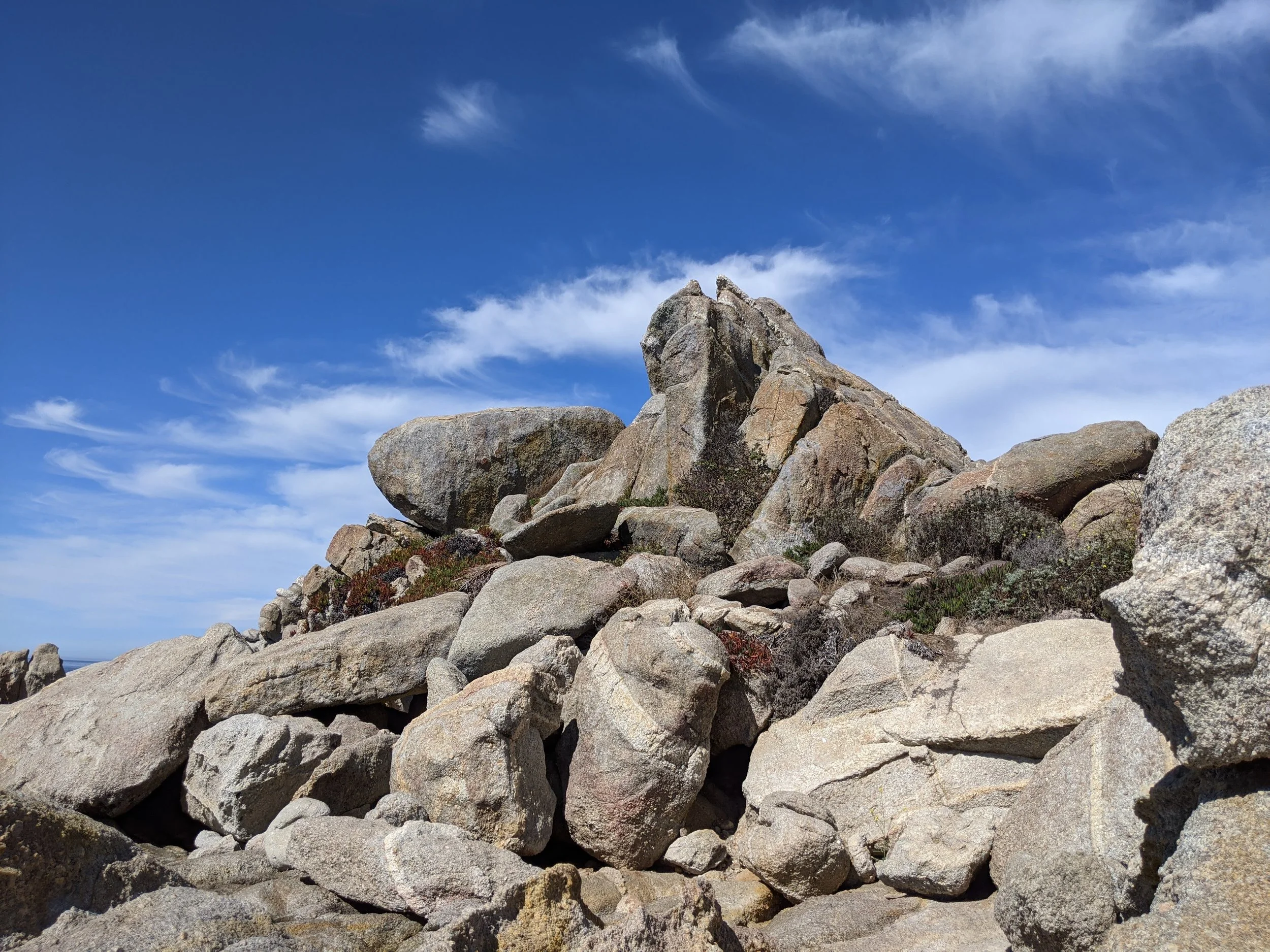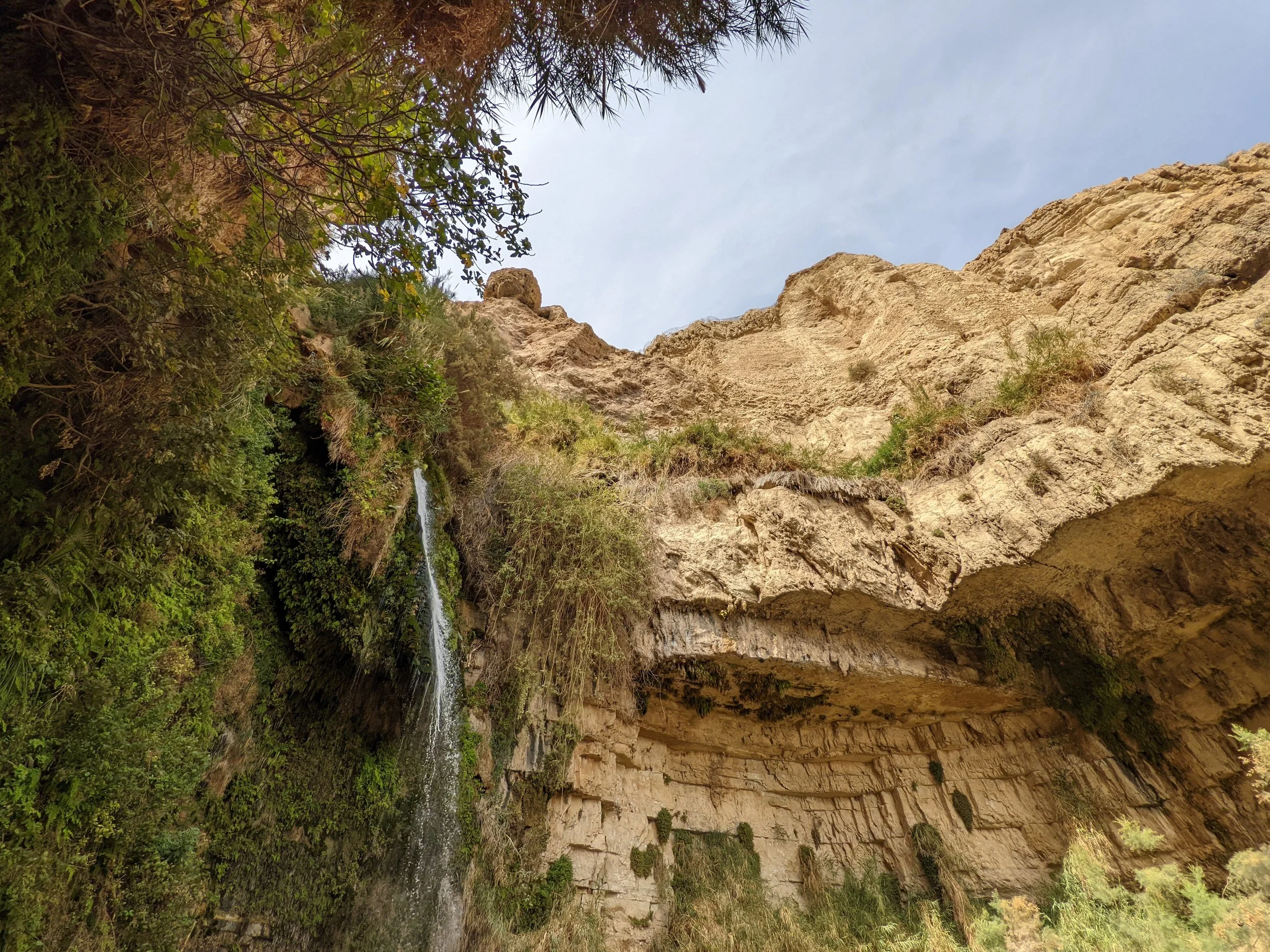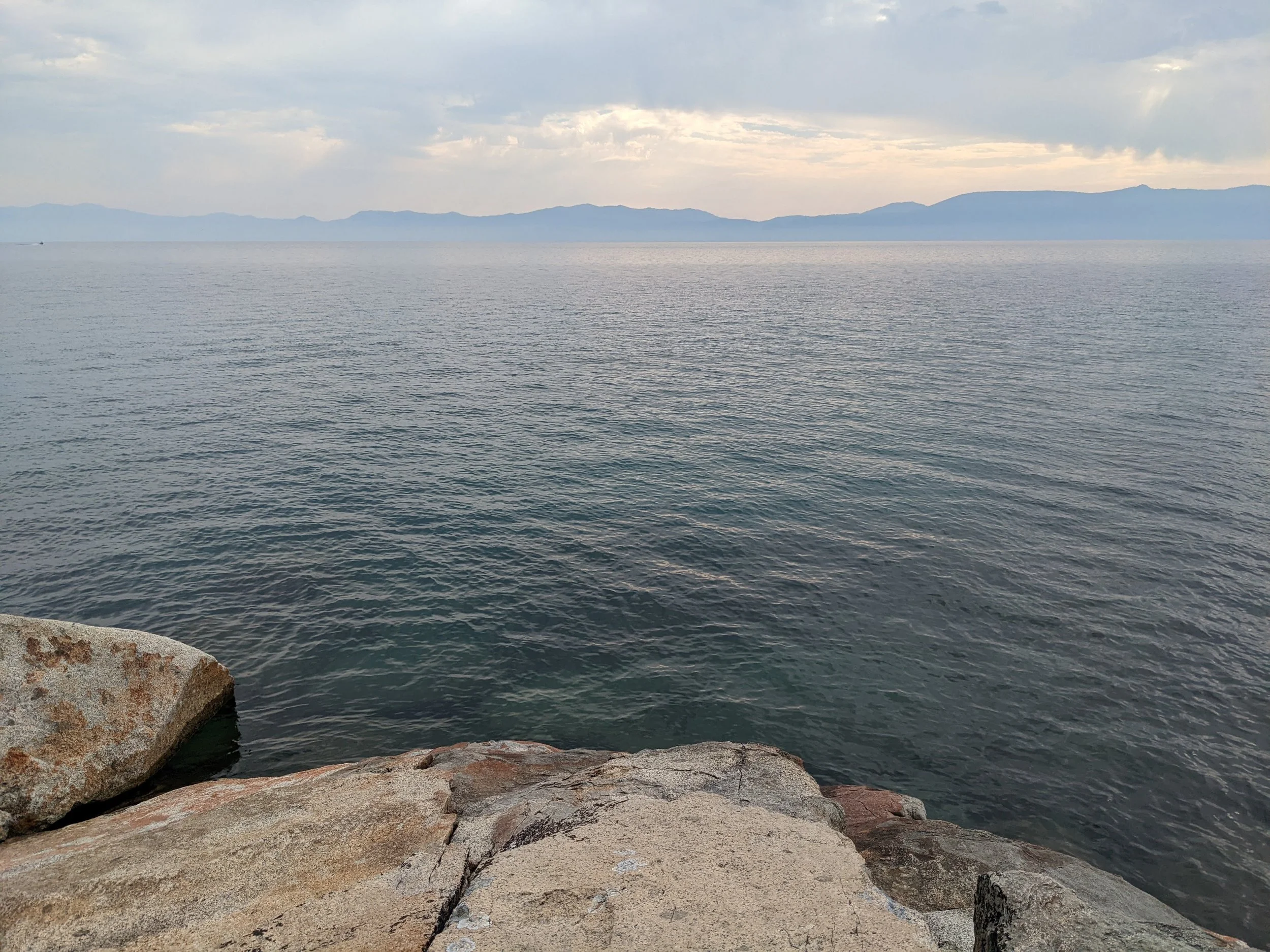1 And he said to them, "Truly, I say to you, there are some standing here who will not taste death until they see the kingdom of God after it has come with power." 2 And after six days Jesus took with him Peter and James and John, and led them up a high mountain by themselves. And he was transfigured before them, 3 and his clothes became radiant, intensely white, as no one on earth could bleach them.
In response to the disciples' confession and this new teaching about his death and resurrection, Jesus took three of his men to a mountaintop. Though we don't know the exact location of this event, it seems likely to be one of Mt. Hermon's peaks, around 9,000 feet in elevation. The other gospels tell us he went there to pray, and, as was their custom, they slept while he cried out to God.
When they awoke, they saw Jesus transfigured and glorious, and then they saw Elijah and Moses speaking with him. After Peter's blunderous suggestion to build tents for each, the Father's cloud of glory enveloped them, and his voice said, "This is my beloved Son, hear him." After the cloud's dissipation, only Jesus remained!
As they came down the mountain, Jesus told them to keep this event to themselves until after he rose from the dead. This raised all kinds of questions in their minds, one of which had to do with Old Testament prophecies concerning Elijah. In answering their questions, Jesus reaffirmed his need to suffer. And they came down the mountain with a glimpse of his glory, but the promise of his suffering as well.
But what are we to do with such a beautiful and awe-inspiring episode? What did it mean for them? What did it mean for Jesus? And what does it mean for us?
Jesus' Promise
First, it was an encouraging preview of things to come. I want you to notice the way our passage begins. Jesus said, "Truly, I say to you, there are some standing here who will not taste death until they see the kingdom of God after it has come with power" (1).
The question is, who were the some standing there who would see the power of the kingdom? And what would the power of the kingdom of God look like? People's answers abound, but they are all problematic.
However, the answer that satisfies me is the one that points to the transfiguration as the fulfillment of Jesus' promise. Mark even connects Jesus' saying with the mountaintop transfiguration by saying "And after six days Jesus took with him Peter and James and John, and led them up a high mountain by themselves " (2). Luke does the same thing (Luke 9:28—"Now about eight days after these sayings..."). This was not a normal way for them to write. They were not tied to chronology like us in our literature. But the chronology was important to them in this episode because it fulfilled what Jesus had said.
Peter's Reflection
This is certainly how Peter thought of the episode many years later. Remember, Jesus told him (and James and John) not to say anything about the transfiguration until after the resurrection. Listen to Peter describe it in his second letter:
2 Peter 1:16–18 (ESV) — 16 For we did not follow cleverly devised myths when we made known to you the power and coming of our Lord Jesus Christ, but we were eyewitnesses of his majesty. 17 For when he received honor and glory from God the Father, and the voice was borne to him by the Majestic Glory, "This is my beloved Son, with whom I am well pleased," 18 we ourselves heard this very voice borne from heaven, for we were with him on the holy mountain.
What did Peter think he saw on this day? Jesus' majesty. Honor and glory from the Father. The power and coming of our Lord Jesus Christ. That's right, power.
And what had Jesus said? There are some standing here who will not taste death until they see the kingdom of God after it has come with power. Right there, on the holy mountain, these three disciples were witnesses of the majesty and honor and glory and power of Jesus.
This Was the Disciples' Need
I submit to you today that seeing Jesus this way was their great need. They were about to enter into years and decades of tumultuous and tireless work for Jesus. James, because of King Herod's bloodthirst, would be the first of the apostles to die for the faith. His brother, John, would be the last of the apostles to die, but his long life was not easy. He would suffer Rome's persecution and, in his elderly state, be banished to a prison island called Patmos, where he received his vision we know as the book of Revelation. And Peter would suffer imprisonment, pressures from all sides, and persecution, eventually dying a torturous death (John 21:18-19).
And this event, this glimpse into Jesus' power and glory and majesty, would have been an aid to all these men. Can't you see it? Their vision of Christ's glory and beauty would have fueled them for years to come. When times were hard, when chaos enveloped them, when catastrophe threatened them, they could have drawn upon this memory as an encouragement to press on.
What they witnessed was a weapon. This revelation was for their motivation. Jesus' power propelled these men.
This Is Our Need
We have a similar need today. When we are bombarded with life's tragedies, when we are tired and worn down by its incessant pressures, and when we feel overwhelmed by the prospects of the future, it is a vision of Jesus' glory and power that can help move us along.
He came once, and he suffered. But these disciples needed a little glimpse of a more glorious coming, one where the kingdom is present in power. And they got their glimpse up on that mountain.
You, too, should know as you read the pages of Scripture, that King Jesus will come in glory. This is one of the reasons the book of Revelation promises to encourage believers who read its contents (Revelation 1:3). Perhaps, even with an imperfect understanding of the book, you need to read Revelation. Maybe you need to catch a preview of Christ's kingdom power and glory on its pages.
Worship
By the way, this glimpse of Jesus, which so encouraged these disciples, was worship. They saw something so glorious and beautiful in Jesus that it drove them to worship. And worship fueled them for their mission.
And when we worship—personally or collectively, in song or silence, with music or from the heart—we are fueled for our work as well.
***
For the entire Mark series, go here. Thank you.




